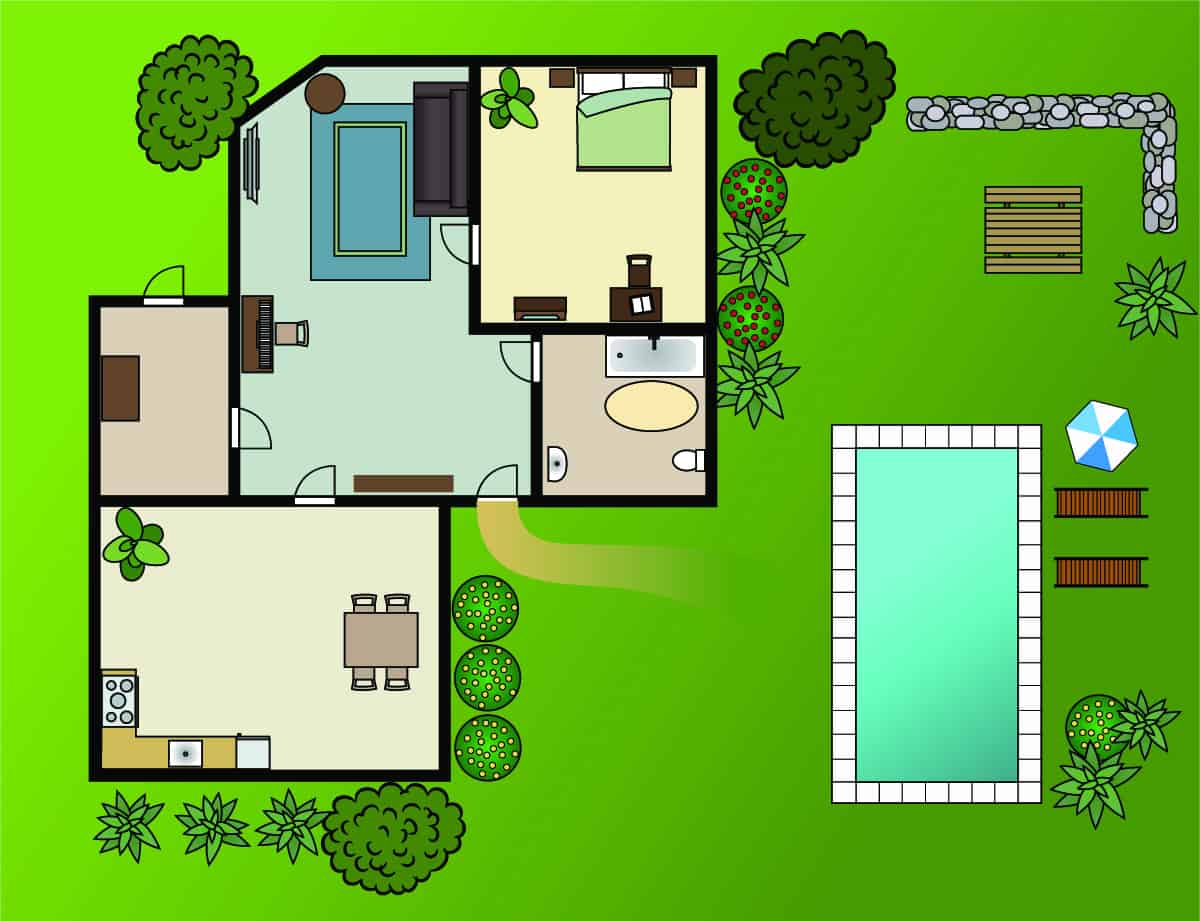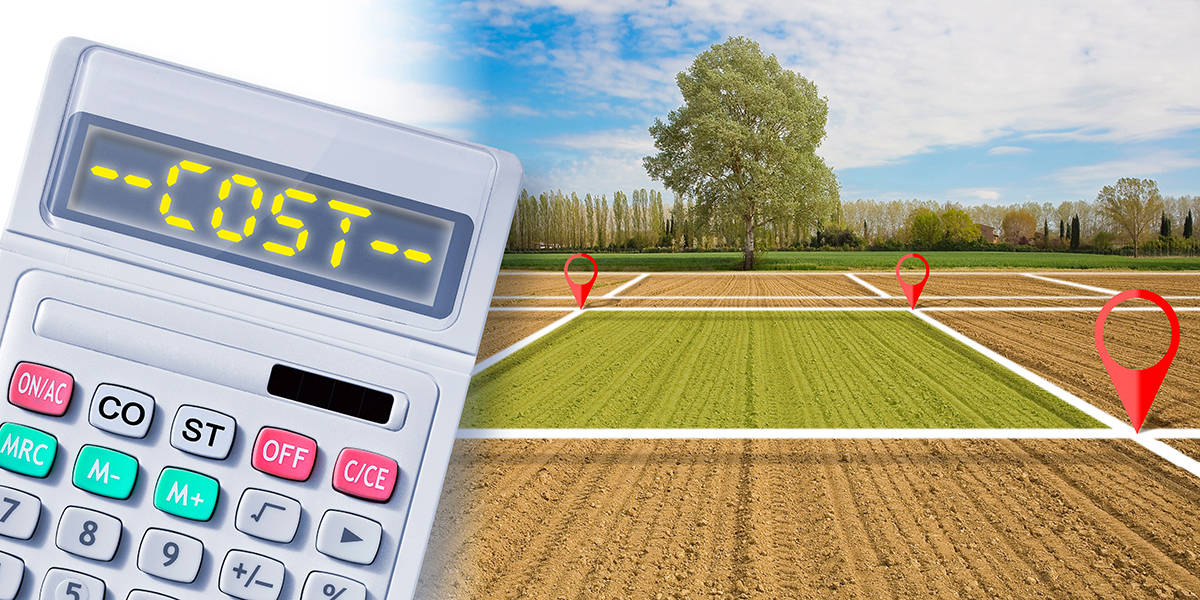Navigating the real estate market can often feel like decoding a complex puzzle. One of the key factors that both sellers and buyers need to consider is the balance between lot size and house size. These two aspects have a profound influence on a property’s value, livability, potential for future expansion, and even the cost of utilities.
Lot size refers to the total area of the land parcel where your property is situated. It includes outdoor spaces like the front yard, backyard, and side yards. For example, a quarter-acre lot size equates to roughly 10,890 square feet of land.
House size is the total living area within the home itself, often calculated in square footage. For instance, a 2,000-square-foot house might include three bedrooms, two bathrooms, and a kitchen.
This guide will explore the intricate relationship between lot size and house size and their significant impacts on property value.
The Implications of Lot Size
The lot size of a property has significant implications, shaping everything from your living experience to the overall property value.
Outdoor Living Space and Landscape Potential
The lot size directly influences the amount of available outdoor space. Larger lots offer expansive outdoor areas, which can be leveraged for various uses such as:
- Creating a lush garden that can serve as a peaceful sanctuary or a space for growing your fruits and vegetables.
- Establishing recreational areas like a swimming pool, a children’s play area, or even a basketball court.
- Building additional structures like a detached garage, a gazebo, or a granny flat.
On the contrary, smaller lots limit the scope for such enhancements but can offer cozy spaces for simple landscaping, a small patio set, or a barbecue area.
Privacy Considerations
Lot size also impacts the degree of privacy your home can offer. Properties with large lots are often spaced further apart from neighbors, offering greater seclusion. This could be particularly beneficial if you value solitude, or if your home features large windows that could compromise privacy in a denser setting.
Smaller lots, being closely spaced, may lack in this aspect but often foster a sense of community, encouraging closer relationships with neighbors.
Future Expansion Possibilities
Lot size is a key determinant when considering future expansion possibilities. A larger lot can accommodate extensions to the existing structure or even an additional building. This flexibility might be a huge advantage if your family grows or if you wish to add value to your property down the line. On the flip side, a smaller lot might restrict such opportunities, and any future expansion may require building upward, subject to local zoning regulations.
The Implications of House Size
Similarly, you should also have a good idea of what the house size is, especially if you’re in the buyer’s market for a piece of property.
Interior Living Space
The house size, also simply referred to as ‘square footage,’ directly impacts the interior living space. A larger house provides more rooms or larger spaces, offering various benefits such as:
- Greater privacy with individual rooms for family members or designated spaces for different activities.
- Versatility in interior design and the ability to create designated spaces such as home offices, workout rooms, or hobby areas.
- Higher potential for accommodating guests or larger families comfortably.
Smaller houses, while offering less space, provide a cozy ambiance and necessitate creative space utilization strategies. They encourage shared family spaces and often result in stronger interpersonal relationships among family members due to closer living quarters.
Maintenance and Upkeep
Larger houses demand more cleaning and maintenance tasks, potentially resulting in higher costs for hiring professional help or purchasing maintenance tools and supplies. They also often feature more complex systems that may require more frequent servicing or repair.
In contrast, smaller homes are generally easier and less expensive to maintain due to their compact nature. Fewer rooms mean less time spent on cleaning and fewer structural components that might need repair or replacement over time.
Utilities and Other Expenses
Utilities and other recurring expenses are usually higher for larger homes. More space to heat or cool means higher energy consumption, resulting in higher utility bills. Larger homes may also incur higher property taxes and insurance premiums due to their higher market value.
Smaller homes, due to their lesser square footage, typically have lower utility costs. They are easier to heat and cool efficiently, which can result in significant savings on electricity and gas bills.
Impact on Property Value
Now, let’s explore lot size and house size’s impacts on property value.
How Lot Size Influences Property Value
Lot size has a considerable impact on property value, as land is a finite resource, particularly in urban or desirable residential areas. Larger lots often command higher prices due to their potential for expansion, additional outdoor features, and greater privacy.
These lots are typically more attractive to buyers who value outdoor living space, anticipate future family growth, or plan to make property additions.
However, the value increase is not always proportional to the size of the lot. The ‘law of diminishing returns’ often applies where, beyond a certain point, each additional unit of lot size adds less to the property value. Moreover, the value enhancement due to lot size can vary significantly based on location and market demand.
How House Size Influences Property Value
The size of a house typically has a direct impact on its market value. Larger homes, offering more living space, extra rooms, or amenities like a home office or a spacious kitchen, generally command higher prices. These properties are often more appealing to large families or buyers who require more space for specific lifestyle needs.
However, like lot size, the impact of house size on property value can be subject to diminishing returns. After a certain threshold, each additional square foot may add less to the overall value. In addition, if a large house is significantly bigger than neighboring properties, it might not attract a proportionate increase in value due to the ‘principle of conformity,’ which suggests that homes gain value when they are surrounded by similar properties.
Balancing Lot Size and House Size for Maximum Property Value
The key to maximizing property value lies in finding the right balance between house size and lot size. This balance depends largely on the property’s location and the prevailing market trends. For instance, in densely populated urban areas, a larger lot size may add significant value, whereas in suburban or rural areas, the size and amenities of the house may carry more weight.







